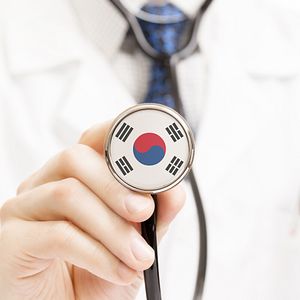An outbreak of Middle East Respiratory Syndrome (MERS) in South Korea is stoking public concern after claiming four lives, while also shining a light on restrictions on information in the country.
The outbreak, which has sickened at least 41 people and led to the quarantine of more than 1,600, has also sparked public anger at the government for failing to control the spread. Public criticism has also targeted a number of individuals, including a doctor, who were accused of not following their quarantine orders.
But it has been the government’s refusal to publicly reveal the hospitals treating the sick that has perhaps generated the most anger and anxiety.
For more than two weeks since the first case was diagnosed, the government declined to reveal the names of hospitals treating those infected. One of its stated reasons for doing so was to spare hospitals financial losses arising from a decline in patients spooked by the outbreak.
Rumors filled the information vacuum, with Internet users compiling their own lists of locations. In turn, police booked several people on defamation charges for falsely identifying certain hospitals. South Korea has loosely applied defamation laws on the books that carry the threat of up to seven years in prison.
Public information is tightly controlled in South Korea relative to its democratic status. Convicted criminals such as murderers and rapists are generally not named in the media, while the Internet is heavily censored for pornography and pro-North Korea content.
While many media outlets criticized the government’s stance this week, they mostly also declined to name the hospitals, even censoring a notice naming the facilities that were hastily erected and taken down by the national rail company. Breaking from the pack, news site Pressian published the names of six hospitals it said were affected, including Konyang University Hospital, Samsung Seoul Medical Center, and Dae Cheong Hostpital.
On Tuesday, a Realmeter poll of 500 adults across the country showed almost 83 percent to be in favor of disclosing the names of the affected hospitals.
Finally, on Friday, Health Minister Moon Hyung-pyo announced the name of one hospital, asking recent visitors to the facility to report to the health authorities. According to Moon, the hospital in question, Pyeongtaek St. Mary’s Hospital, located about 65 km from Seoul, was the source of 30 of the 41 confirmed cases of the disease. But with 14 hospitals in total having handled MERS patients, according to the Chosun Ilbo newspaper, the bulk of the affected facilities remain officially unconfirmed.
Park Kyung-shin, a law professor and freedom of expression activist, told The Diplomat that the government shouldn’t need to incentivize hospitals to meet their legal obligations. But, he said, the government could have avoided the risk of financial losses by securing a designated quarantine facility.
“That shows how weak the government is and how weak the public confidence in the government is,” said Park. “If there was enough public confidence in the government, the government should be able to approach one big hospital and designate it as a sequestration facility and then channel all the patients over there.”
After a fortnight of rampant speculation, the question of reputational damage is already moot, he said.
“I think there are enough hospitals that are stigmatized already, so I think at this point there is really no point in trying to protect the reputation of the hospitals. So I think the government should disclose all the names now.”

































